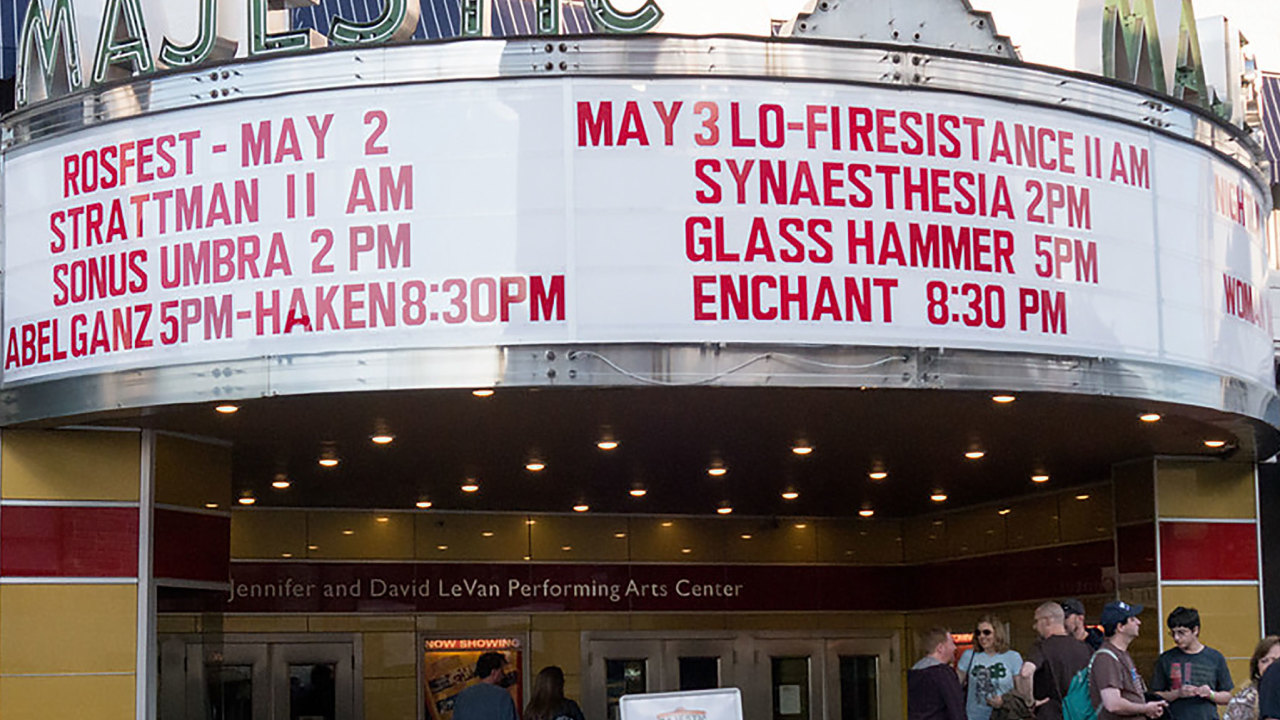It was a warm night last Monday in Philly and I witnessed one of the best acts I’ve ever seen on stage, play to an empty bar. The artist in question was a middle- aged woman with a voice so sweet and songs so achingly beautiful, I could hardly stand to watch her perform
She finished her set to the sound of sparse applause from the six of seven other musicians at the open mic night. Visibly dejected, she put her guitar in a case and quickly headed for the exit. I put down my drink, excused myself from my friends and followed her outside, just in time to see her climbing into a car and driving away before I have a chance to tell her how amazing she was.
They say that history is made by those who turn up. Perhaps the same can also be said for those who witness it and yet that wonderful musician probably went to bed that night thinking she was a failure.
Imagine all the greatest shows you’ve ever heard about, such as Hendrix performing Sgt Peppers Lonely Hearts Club Band at the Saville Theatre or King Crimson’s breakout show at Hyde Park supporting the Rolling Stones, never happening simply because nobody bothered to show up.
The world would be a very different place indeed.
Over the past ten years, the live music scene all over the world has been quietly, yet inexorably changing. As property costs skyrocket, venues struggle with both increasing rents and dwindling crowds. A simple night out as a music fan to a local show becomes harder and harder on the pocket and the lure of a night in surfing YouTube or relaxing with a drink and a 5.1 Blu-ray, looks ever more like the normal way to encounter music.
So where once an act could count upon a core audience to attend local venues, promoters are less willing to take a chance with new acts even in their hometown. In short, the world outside our window is quickly becoming just that; the world we look at through our front window.
Okay, I’ll admit that confronted by all this bleak information, you could be forgiven for thinking that we are witnessing the last febrile contortions of a once mighty business but thankfully that is not the case. Those who make up the core of our music scene appear to have found a way around the problem with a solution that has been right under our noses for many years; the prog festival weekender.

The weekender had humble beginnings, driven by an enthusiastic few but has grown into big business over the past few decades as it addresses head on all the problems described above. A festival ticket might cost more but in return it gives you a variety of acts to pick and choose from, a ready-made social scene and a chance to get away from all the distractions of everyday life.
Yes, that’s right. Even though your hair might be a little thinner and grayer than it once was and perhaps your body isn’t as lithe either, none of that matters. For those three days, you get to remember what it was like to be a star-struck teenager all over again (minus the spotty completion, social awkwardness and the enforced poverty).
Many (myself included) mourn the loss of the regular live scene but the realist inside us all recognizes that nothing stays the same forever. Where we once used to see twelve or so live acts over the period of a year, that schedule of music has been compressed into one intense weekend, laced with the strong possibility of catching up with old friends, room service and the chance grab some CDs and merch into the bargain.
To give you an example of what I mean, I’ve just attended the Rites Of Spring Festival (RoSfest) this weekend in Gettysburg, Pennsylvania and all that I have described above was made manifest over the past three days. In many ways, both the fans and musicians become so closely integrated over the weekend, it might even be more accurate to describe the three days as a prog conference, full of fun, frolics and enormous networking opportunities.
I chatted to other musicians, promoters, stage crew, journalists and die heard music enthusiasts, all of whom were happy just to talk like old friends. It was an incredibly liberating experience and proof positive that while the traditional music scene struggles on from night to night, the festival weekender allows everyone the chance to reach out to a wider community of like minded individuals.
This is the power of simply turning up and with such weekenders going from strength to strength (RoSFest is in its 12th year now), you get to witness for yourself the simple yet essential power of being the center of something important.
None of this of course will provide any comfort for that extraordinary woman who played last Monday’s open mic night but perhaps if she has the strength of character to return next week, I’ll at least be able to tell her how wonderful she was and that perhaps somewhere, there is a weekender with her name on it too.


